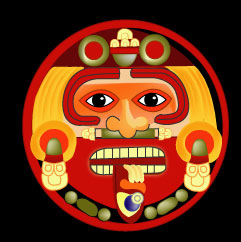
A major international conference to be held at the University of Notre Dame next week (Oct. 30 to Nov. 2) promises to put the University on the map for scholarly research on Latin American indigenous languages and cultures. The conference will showcase Latin American and especially indigenous scholars, a rare occurrence in U.S. academic circles.
More than 50 indigenous language experts from 11 countries in Latin America and the Caribbean will join some 60 others from the United States, Europe, and Canada to share pedagogy and research aimed at fostering and disseminating indigenous languages and traditions and making a tangible difference in the lives of indigenous peoples.
Keynoters include distinguished U.S. and Latin American academics as well as Demetrio Cojtí Cuxil, a Maya intellectual and activist who served as Guatemalan deputy vice minister of education, and Graciela Huinao, a renowned Mapuche poet from Chile.
Hosted by the Kellogg Institute for International Studies, the 2011 Symposium on Teaching and Learning Indigenous Languages of Latin America (STLILLA) will bring together instructors, practitioners, activists, indigenous leaders, scholars and learners of indigenous languages.
“STLILLA 2011 is a major research conference dedicated to promoting and preserving the languages and cultures of some of the most underrepresented peoples in our hemisphere,” says Kellogg Faculty Fellow Sabine G. MacCormack, a conference organizer.
“By bringing Latin American and indigenous scholars to the conference to present research that focuses on and benefits their own communities, Notre Dame will make an important contribution to indigenous movements working to make their voices heard, maintain the vitality of their cultures and ways of life, and improve their living conditions through education and a more active role in society,” she says.
MacCormack, the Rev. Theodore M. Hesburgh, C.S.C., Professor of Arts and Letters, was instrumental in founding the University’s Latin American Indigenous Language Learning Program, which offers campus instruction in Quechua, the language of the Incas.
The conference aims to engage participants in a hemispheric dialogue and also to serve as a forum for networking and exchanging ideas, experiences and research on pedagogical, methodological and practical issues from crossdisciplinary perspectives.
This second symposium builds on the accomplishments of STLILLA 2008, the first initiative of this scope in the world, which resulted in the formation of the Association for Teaching and Learning Indigenous Languages of Latin America (ATLILLA).
To organize STLILLA 2011, the Kellogg Institute partnered with the Consortium of Latin American Studies Programs (CLASP) and nine university centers for Latin American Studies, as well as seven departments, institutes, and offices at Notre Dame.
Organizers raised more than $140,000 to provide travel support for participants from Latin America. Outside funding included a $25,000 grant from the National Science Foundation’s Documenting Endangered Languages Program as well as a grant from the Ford Foundation–Latin American Studies Association (LASA) Special Projects fund.
For more information: kellogg.nd.edu/STLILLA
Contact: Sharon Schierling, associate director, Kellogg Institute for International Studies, 574-631-6580, sschierl@nd.edu